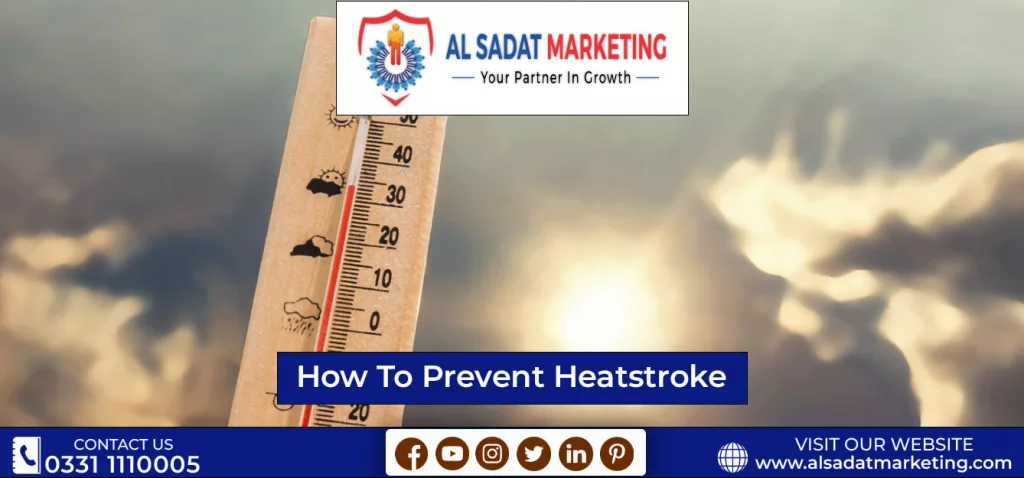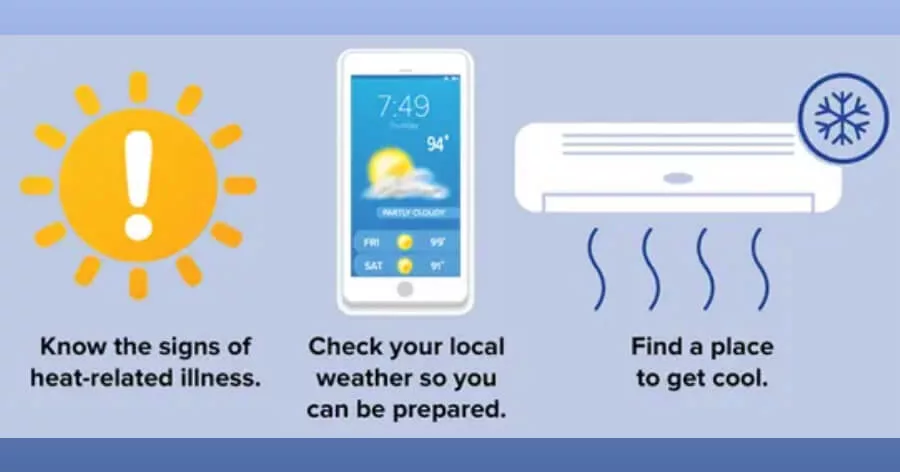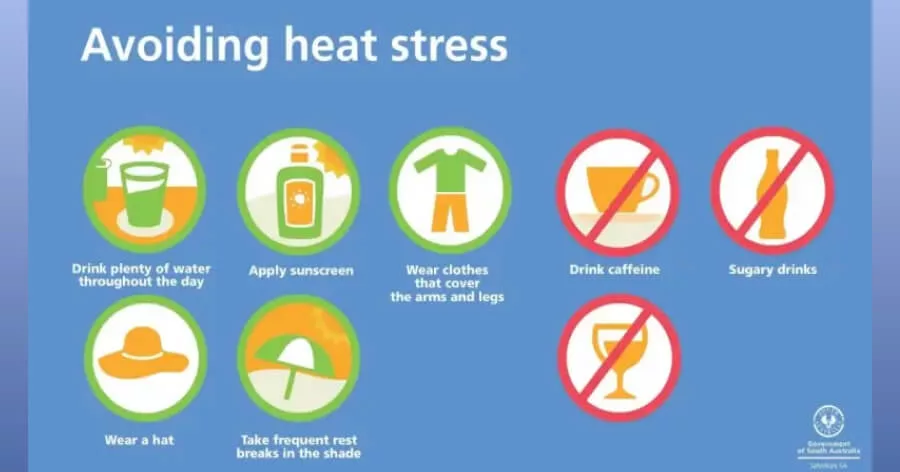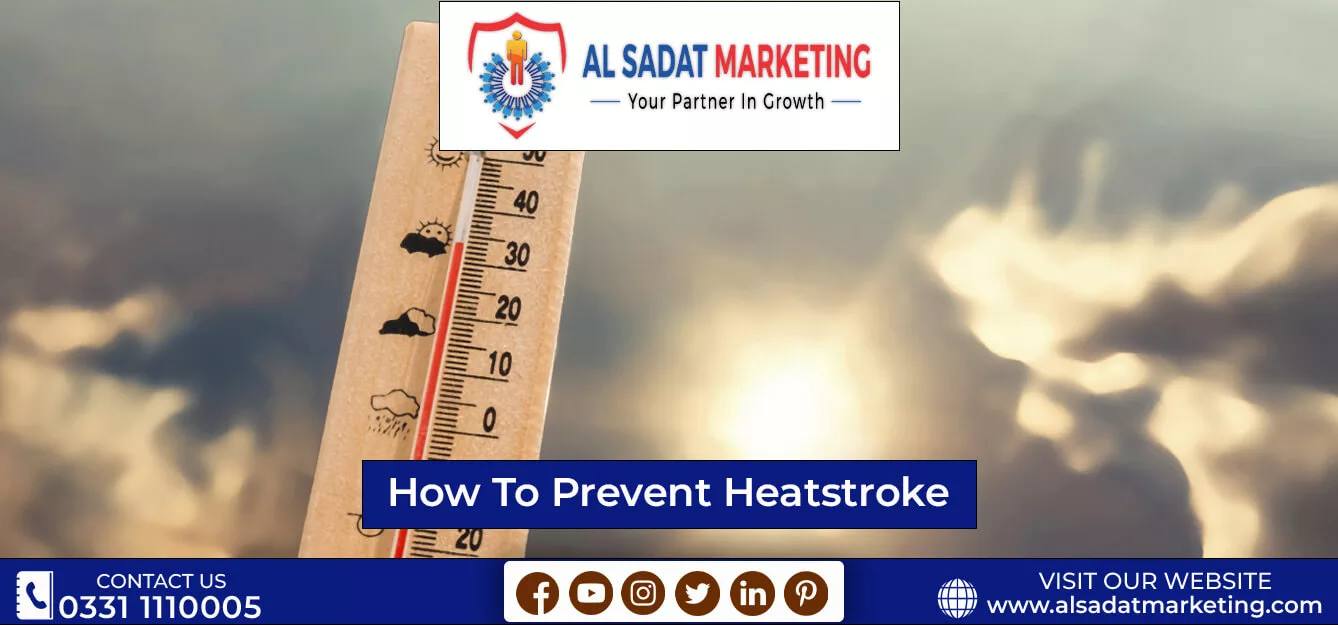Heatstroke: How to Prevent Heatstroke? Its Symptoms & Causes

A condition known as heatstroke is brought on by your body overheating, typically as a result of extended exposure to or physical activity in hot environments. When your body temperature reaches 104 F (40 C) or greater, you could experience heatstroke, the most severe type of heat injury. Summer time is when this disorder is most prevalent.
Emergency care is required for heatstroke. Your brain, heart, kidneys, and muscles all soon suffer damage if heatstroke is not untreated. The longer treatment is postponed, the greater the damage becomes, raising your risk of fatal complications or major complications.
Symptoms of Heat Stroke
High Body Temperature
The primary symptom of heatstroke is a core body temperature of 104 F (40 C) or greater, measured with a rectal thermometer.
Altered Mental OR Behavioral Condition
Heatstroke can cause a variety of symptoms, including confusion, agitation, slurred speech, irritability, delirium, seizures, and coma.
Changes in Sweating
Your skin will feel hot and dry to the touch if you have heat stroke brought on by hot weather. Your skin may feel dry or slightly damp, though, if you have heat stroke brought on by vigorous exercise.
Vomiting and Nausea
You might vomit or feel sick to your stomach.
Flushed Skin
As your body temperature rises, your skin may turn red.
Quick Breathing
You might start breathing quickly and shallowly.
A Rapid Heartbeat
Due to the huge strain heat stress places on your heart as it works to cool your body, your pulse may noticeably rise.
Headache
Your head can ache.
Dehydration
A significant heat-related illness is dehydration. Additionally, it is a risky side effect of fever, vomiting, and diarrhea. Dehydration is particularly dangerous for children and those over 60.

Causes of Heatstroke
There are two types of heat strokes; non-exertional and non-exertional. The heat stroke can be a result of:
Extremely Hot Temperature
Nonexertional (classic) heatstroke is a form of heatstroke in which being in a hot environment causes an increase in core body temperature. This kind of heat stroke usually happens after being outside in hot, muggy conditions, especially for an extended amount of time. People with chronic illnesses and elderly persons are most likely to experience it.
Exhausting Physical Activity
Excessive physical activity in hot weather raises the core body temperature, which leads to exertional heatstroke. Exertional heat stroke can happen to anyone working out in the heat, but it’s most likely to happen to someone who isn’t acclimated to the heat.
Ways to Prevent Heat Stroke
Heatstroke can be anticipated and avoided. Take the following actions to avoid heat stroke while it’s hot outside:
Put On Comfortable, Light Clothing
Your body won’t be able to cool down correctly if you’re wearing too much or too little clothing.
Avoid Becoming Sunburned
Sunburn inhibits your body’s capacity to cool itself, so apply a broad-spectrum sunscreen with an SPF of at least 15 and cover up outside with a wide-brimmed hat and sunglasses. Apply plenty of sunscreen and reapply it every two hours, or more frequently if you’re swimming or perspiring.
Drink A Lot of Water
Your body will sweat and keep its temperature regular if you stay hydrated.
Leave No One Inside a Parked Automobile Ever
This is a common reason why kids die from the heat. Your car’s interior temperature can increase 20 degrees F (more than 11 C) in just 10 minutes if it is parked in the sun.
Even if the windows are cracked or the car is in shade, it is dangerous to leave someone inside a parked automobile in warm or hot weather. Keep your car locked when it is parked to stop kids from getting in.
Be Cautious During the Warmest Times of the Day
If engaging in strenuous activities in hot weather is unavoidable, stay hydrated and take regular breaks in a cool place. Try to plan physical activity or labour-intensive tasks for cooler times of the day, such as the early morning or late at night.
Become Accustomed
Prior to being used to the heat, try to minimize your time working or exercising in it. Unaccustomed to the heat, people are especially prone to heat-related illnesses. Your body may need a few weeks to get used to the heat.

Avoid the heat and take immediate action if you have signs of overheating if you take medications or have a condition that makes you more susceptible to heat-related issues. Make sure there are medical resources available in case of a heat emergency if you participate in a demanding sporting event or activity in hot weather.
Other Tips for Preventing Heat Stroke
- Keep yourself cool and the air around you moving. Utilize a fan or air conditioning if you can, and draw your curtains or blinds. If you don’t have air conditioning, think about going to a public library or shopping center that does.
- Frequently have smaller, cold meals like salads and more frequently.
- Use damp towels, submerge your feet in cold water, and take cool (not frigid) showers to stay cool.
- Check on elderly, sick, and fragile relatives, friends, and neighbors who might want assistance in surviving the heat. On days with excessive heat, call them at least once a day.
Heatstroke cannot be treated at home. If you exhibit heat stroke symptoms or signs, get emergency medical attention. While you wait for emergency assistance, others should take action to calm you down. While you’re waiting for medical help, refrain from drinking anything.
Conclusion
A simple prevention strategy can help you avoid a potentially fatal emergency like heatstroke. The most vulnerable groups include the elderly, small children, women who are pregnant or nursing, as well as those who have heart disease, high blood pressure, or lung conditions. Drink plenty of water, remain cool indoors or in the shade, and limit outdoor activities like gardening, exercise, and renovations when it’s hot outside.
As much as you can, stay indoors where it’s cool. If your home lacks air conditioning, visit a mall or a public library instead. Even a short time spent in an air-conditioned environment will assist your body stay cooler when you return to the heat. To find out if there are any heat-relief shelters nearby, contact your local health authority.
To get more news on Real Estate and infrastructure developments, please contact 0331 1110005 or visit www.alsadatmarketing.com
You can also invest in other famous and most in demand housing societies, such as , Blue World City, Rudn Enclave, 7 Wonders City Peshawar, Taj Residencia, Kingdom Valley, New Metro City Gujar Khan, Forest Town Rawalpindi, University Town Rawalpindi, ICHS Town, Park View City Islamabad, Multi Gardens B17 Islamabad and Nova City Islamabad.
Al Sadat Marketing please contact 0331 1110005 or visit https://alsadatmarketing.com/
Few more real estate housing schemes which are trending now a days in Islamabad by including: Faisal Town Phase 2, Prism Town Gujar Khan, New City Paradise, Eighteen Islamabad, 7 Wonders City Islamabad, Capital Smart City, Silver City Islamabad, The Life Residencia, Faisal Town Islamabad, Islamabad Golf City, Islamabad Model Town and Marble Arch Enclave.
Al Sadat Marketing is a real estate firm located in Islamabad & Rawalpindi in Pakistan. With over 7+ Years of experience, Al Sadat Marketing Company is providing its services to all trending societies in: Islamabad Projects, Rawalpindi Projects, Gujar Khan Projects, Burhan Projects, and Peshawar Projects etc.
Book Your Plot Now: +92 331 111 0005
Al Sadat Marketing
0331 1110005
Head Office: First Floor, Yasin Plaza, Blue Area Main Jinnah Avenue, Islamabad










